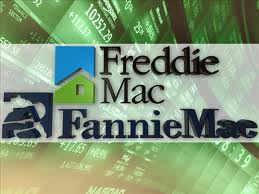Repercussions of the the London Interbank Offered Rate (Libor) scandal were deeply felt by government-sponsored mortgage investing companies Fannie Mae and Freddie Mac, which may have lost more than $3 billion.
 Repercussions of the the London Interbank Offered Rate (Libor) scandal were deeply felt by government-sponsored mortgage investing companies Fannie Mae and Freddie Mac, which may have lost more than $3 billion. According to various news reports, the inspector general from the Federal Housing Finance Agency (FHFA) detected the loss and mentioned the findings to the Wall Street Journal, Reuters, and other news media outlets. The report has not yet been formally published.
Repercussions of the the London Interbank Offered Rate (Libor) scandal were deeply felt by government-sponsored mortgage investing companies Fannie Mae and Freddie Mac, which may have lost more than $3 billion. According to various news reports, the inspector general from the Federal Housing Finance Agency (FHFA) detected the loss and mentioned the findings to the Wall Street Journal, Reuters, and other news media outlets. The report has not yet been formally published.
The Libor is a benchmark financial index and average interest rate that is widely used by the credit markets. It is a common feature of the Adjustable Rate Mortgages (ARMs) originated in the United States. The Libor is calculated by taking an average of the interest rates used by leading banks based in London, including Barclays, the Royal Bank of Scotland and Lloyds. International banks that are based in London, including Bank of America and JP Morgan Chase, are also members of Libor. The interest rates that make up the average are not for retail lending, they are used for institutional and interbank operations.
Since the Libor has been traditionally considered a far more stable index than the U.S. prime rate and other benchmark indices, American mortgage lenders have used it for many decades in ARM products. Many of the Fannie and Freddie mortgage guarantee products use the Libor as well.
Vicious Manipulation
The Libor is also tied to financial instruments such as the lucrative and risky derivatives. Claims of Libor rigging by major banks was first reported in 2008 by the Wall Street Journal, and later by the International Monetary Fund (IMF). The Bank of England, which is the United Kingdom's central bank, was also suspicious of Libor rigging for the purpose of manipulating the derivatives markets on Wall Street. Earlier this year, Barclays Bank agreed to a series of settlements to resolve various criminal fraud charges, and the investigation into the scandal has revealed even more nefarious patterns.
Ingratiating the Libor has widespread financial and economic effects around the world since the index is tied to many lending operations. The losses by Fannie and Freddie stem from the several mortgage-backed securities the companies routinely invest in to stimulate mortgage lending in the U.S., boost liquidity and keep borrowing costs within reason. The FHFA is already considering legal action in the matter with the intent to seek rewards for losses that were ultimately absorbed by American taxpayers when Fannie and Freddie failed in late 2008.



